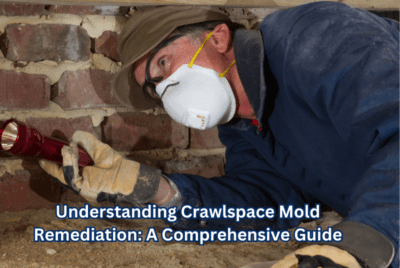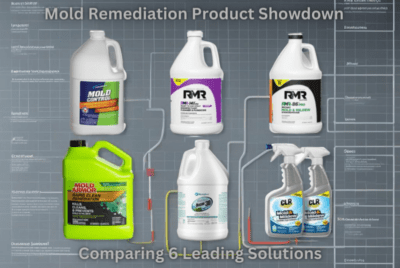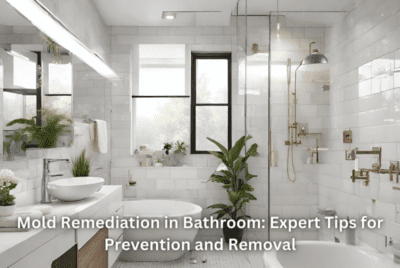10 Warning Signs of Mold Toxicity
Hello, fellow health warriors! Today, we’re peeling back the layers of a hidden adversary in our homes and environment – 10 warning signs of mold toxicity. It’s not just about the musty smell or the unsightly blotches on walls. It’s a health hazard that, according to a study published in the Journal of Environmental and Public Health, can lead to a myriad of symptoms due to a complex interplay of immune and inflammatory responses. So, let’s get into the nitty-gritty of mold toxicity, armed with scientific insights and expert opinions.
Understanding Mold Toxicity: Beyond Allergies
Mold toxicity transcends the occasional sneeze or cough. Dr. Jack Thrasher, an expert in toxicology and immunotoxicology, explains, “Mold toxicity should be considered a serious health threat. Mycotoxins can cause more than just allergic reactions; they can trigger inflammation, oxidative stress, and an array of neurological symptoms.” Indeed, the immune reaction is just the tip of the iceberg. When our bodies are exposed to mold, we may experience chemical and inflammatory reactions that can lead to chronic health issues.
10 Warning Signs Checklist: Is It Mold Toxicity?
- Persistent respiratory issues (coughing, wheezing)
- Unexplained neurological symptoms (headaches, dizziness)
- Chronic fatigue and weakness
- Skin irritation (rashes, hives)
- Sensory disturbances (metallic taste, heightened sensitivity)
- Cognitive impairments (‘brain fog’, memory loss)
- Mood swings and mental health issues (anxiety, depression)
- Digestive problems (nausea, diarrhea)
- Immune system suppression
- Joint and muscle pain
If you’re checking off multiple items on this list, it might be time to investigate further.
Understanding Mold Toxicity: Causes and Symptoms
Common Causes of Mold Toxicity
Mold can grow in various areas of our homes, including basements, bathrooms, kitchens, and areas with water damage. Some common causes of mold growth are:
- Water leaks and condensation
- Flooding
- High humidity levels
- Poor ventilation
Identifying and addressing the root cause of mold growth is crucial to preventing mold toxicity.
Symptoms of Mold Toxicity
Mold toxicity can manifest in different ways and vary from person to person. Here are 10 warning signs that could indicate mold toxicity:
1. Persistent Respiratory Issues
Experiencing frequent coughing, wheezing, shortness of breath, or worsening asthma symptoms could be signs of mold toxicity. Inhaling mold spores can irritate the respiratory system and cause these respiratory issues.
2. Allergic Reactions
Mold allergies can trigger allergic reactions, such as sneezing, runny nose, itchy eyes, and skin rashes. If you notice these symptoms worsen when you’re indoors or in certain environments, mold exposure might be the culprit.
3. Chronic Fatigue and Weakness
Feeling constantly tired, even after getting enough rest, could be a sign of mold toxicity. Exposure to mold and its mycotoxins can drain your energy and lead to chronic fatigue and weakness.
4. Brain Fog and Memory Problems
Mold toxicity can affect cognitive function, leading to difficulty concentrating, memory problems, and a feeling of “brain fog.” If you find yourself struggling with mental clarity and focus, mold exposure might be a contributing factor.
5. Skin Irritations and Rashes
Exposure to mold can cause skin irritations, such as redness, itching, and rashes. These reactions may occur when you come into direct contact with mold or through exposure to airborne spores.
6. Headaches and Migraines
Frequent headaches and migraines could be a warning sign of mold toxicity. The mycotoxins released by mold can trigger headaches and exacerbate migraine symptoms in susceptible individuals.
7. Digestive Issues
Mold toxicity can also affect the digestive system, leading to symptoms such as nausea, abdominal pain, bloating, and diarrhea. If you notice persistent gastrointestinal discomfort, mold exposure should be considered as a potential cause.
8. Joint and Muscle Pain
Unexplained joint pain, muscle aches, and stiffness can be associated with mold toxicity. The inflammatory response triggered by mold exposure can contribute to these symptoms.
9. Mood Swings and Depression
Mold toxicity has been linked to mood disorders, including mood swings, anxiety, and depression. The toxins released by mold can disrupt neurotransmitter function and affect mental well-being.
10. Weakened Immune System
Prolonged exposure to mold toxins can weaken the immune system, making you more susceptible to infections, allergies, and other illnesses. If you find yourself frequently falling ill or experiencing a weakened immune response, mold toxicity could be a contributing factor.
The Most Toxic Mold Species and Their Effects
Not all molds are created equal. Some, like Stachybotrys chartarum (black mold), produce potent mycotoxins that are particularly harmful. A study from the Centers for Disease Control and Prevention (CDC) highlights that exposure to these toxic molds can lead to severe health problems, especially in those with compromised immune systems.
Addressing Mold Toxicity
Identifying and addressing mold toxicity is crucial for safeguarding your health and well-being. Prolonged exposure to mold toxins can have serious implications on various body systems and lead to chronic health issues. Taking prompt action to reduce mold exposure is essential to prevent further health complications.
Treatments and Preventative Measures
When it comes to treatment, the first step is always to remove the source of exposure. This may involve professional mold remediation. In terms of medical treatment, options such as antifungal medications, detoxifying agents, and supplements to support the immune system can be effective. Preventative measures include:
- Regularly inspecting your home for signs of mold and moisture
- Using dehumidifiers in damp areas
- Ensuring proper ventilation throughout your living space
- Opting for mold-resistant building materials and paints
Steps to Reduce Mold Exposure and Improve Health
Here are some suggestions to help you reduce mold exposure and improve your overall health:
1. Identify and Remove Mold Sources
Thoroughly inspect your home for any visible signs of mold growth. Pay attention to areas prone to moisture and water damage, such as bathrooms, basements, and attics. If you find mold, it’s important to address the issue promptly. Remove the mold and fix any underlying moisture problems to prevent its recurrence.
2. Improve Indoor Ventilation
Proper ventilation is key to preventing mold growth. Ensure that your home has adequate airflow by opening windows, using exhaust fans, and installing ventilation systems. Good air circulation helps to reduce moisture levels and inhibit mold growth.
3. Control Humidity Levels
Maintaining optimal humidity levels is crucial in mold prevention. The ideal humidity range is between 30% and 50%. Use dehumidifiers in damp areas of your home, especially during humid seasons. Monitor and control humidity levels to create an inhospitable environment for mold.
4. Clean and Dry Water-Damaged Areas
Water damage can lead to mold growth if not addressed promptly. In case of water leaks, floods, or spills, thoroughly clean and dry the affected areas within 24-48 hours. Use appropriate cleaning solutions and ensure proper ventilation during the drying process.
5. Use Air Purifiers and Filters
Invest in high-quality air purifiers and filters that are specifically designed to capture mold spores and other airborne contaminants. These devices can help improve the air quality in your home and reduce the risk of mold-related health issues.
6. Seek Professional Help if Necessary
In severe cases or if you suspect extensive mold contamination in your home, it is advisable to seek professional help. Certified mold inspectors can conduct thorough assessments to identify hidden mold sources and provide remediation recommendations. Professional mold remediation services can ensure safe and effective removal of mold, minimizing the risk of exposure.
Conclusion
Mold toxicity is a serious health concern that can lead to various symptoms and complications. Being aware of these 10 warning signs of mold toxicity is essential for early detection and prompt action. By reducing mold exposure and implementing preventive measures, you can safeguard your health and create a healthier living environment for yourself and your family.
Remember, if you suspect mold toxicity or experience persistent health issues related to mold exposure, consult with a healthcare professional for proper diagnosis and treatment.
FAQs on Mold Toxicity
What makes black mold more dangerous than other types?
Black mold releases mycotoxins that can cause serious health issues, particularly in those with weakened immune systems.
Can mold exposure cause long-term health problems?
Yes, chronic exposure to mold can lead to long-term health issues, including respiratory conditions and neurological symptoms.
How often should I check my home for mold?
It’s wise to inspect your home for mold annually or after any event that introduces moisture, like flooding.
Are there any natural remedies for mold toxicity?
While natural remedies can support overall health, they should not replace professional medical treatment and mold remediation.
Can eating moldy food cause mold toxicity?
Consuming moldy food can expose you to mycotoxins, which may contribute to mold toxicity symptoms.
Note: The information provided in this article is for informational purposes only and should not be considered as medical advice. Always consult with a qualified healthcare professional for proper diagnosis and treatment of any health-related concerns.




